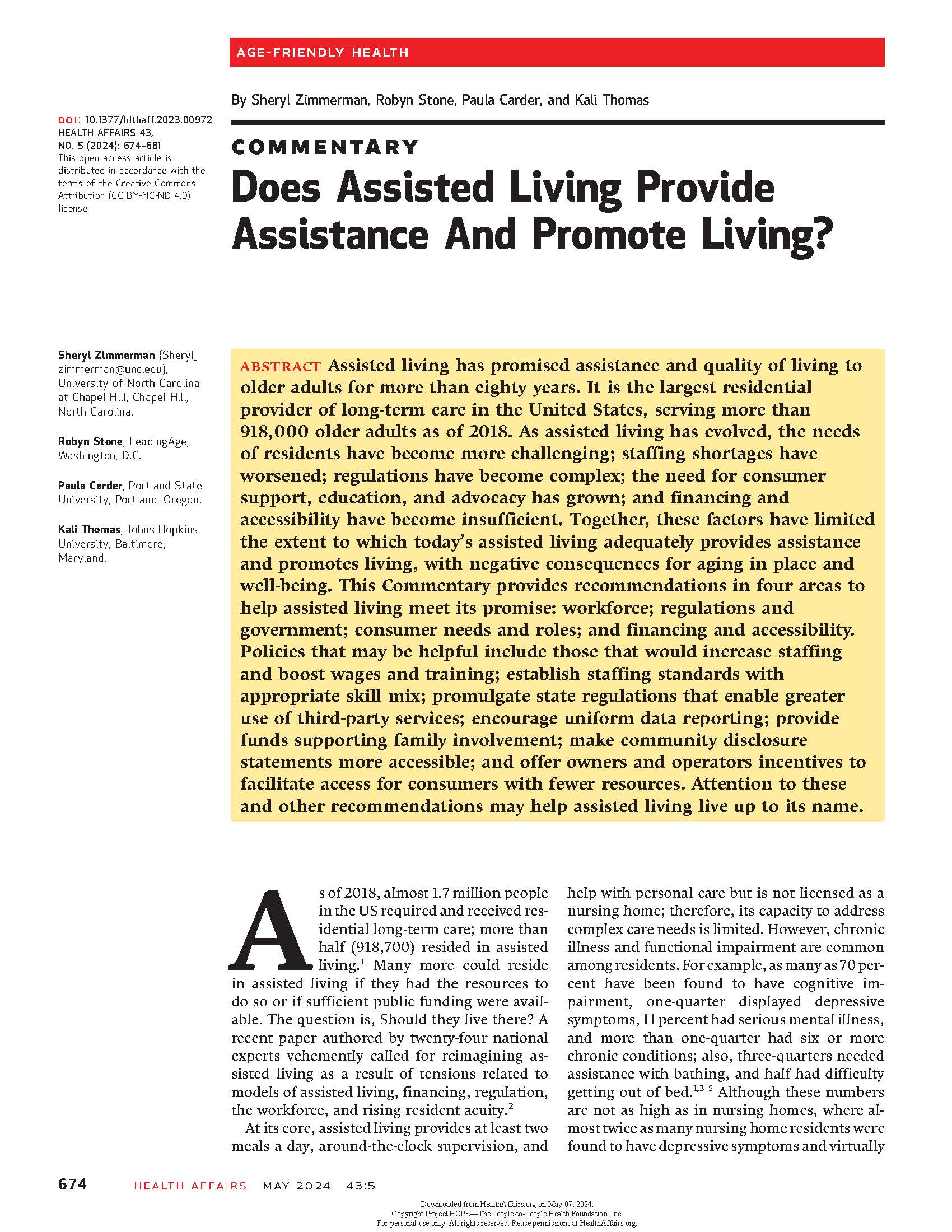Background
Assisted living (AL) is the largest residential long-term care provider in the United States, including for persons with Alzheimer’s disease and related dementias. Despite recognizing the challenge of infection control for persons with dementia, this study of 119 AL communities is the first to describe dementia-relevant COVID-19 infection control across different types of AL communities, and to discuss implications for the future.
Methods
From a parent study sampling frame of 244 AL communities across seven states, 119 administrators provided data about COVID-19 infection control practices and resident behaviors. Data were collected from July 2020 through September 2021. Communities were differentiated based on the presence of beds/units dedicated for persons living with dementia, as being either dementia-specific, mixed, or integrated. Data obtained from administrators related to feasibility of implementing seven infection control practices, and the extent to which residents themselves practiced infection prevention. Analyses compared practices across the three community types.
Results
Less than half of administrators found it feasible to close indoor common areas, all community types reported a challenge organizing group activities for safe distancing, and more than half of residents with dementia did not wear a face covering or maintain physical distance from other residents when indicated. Dementia-specific AL communities were generally the most challenged with infection control during COVID-19.
Conclusion
All AL community types experienced infection control challenges, more so in dementia-specific communities (which generally provide care to persons with more advanced dementia and have fewer private beds). Results indicate a need to bolster infection prevention capacity when caring for this especially vulnerable population, and have implications for care in nursing homes as well.


